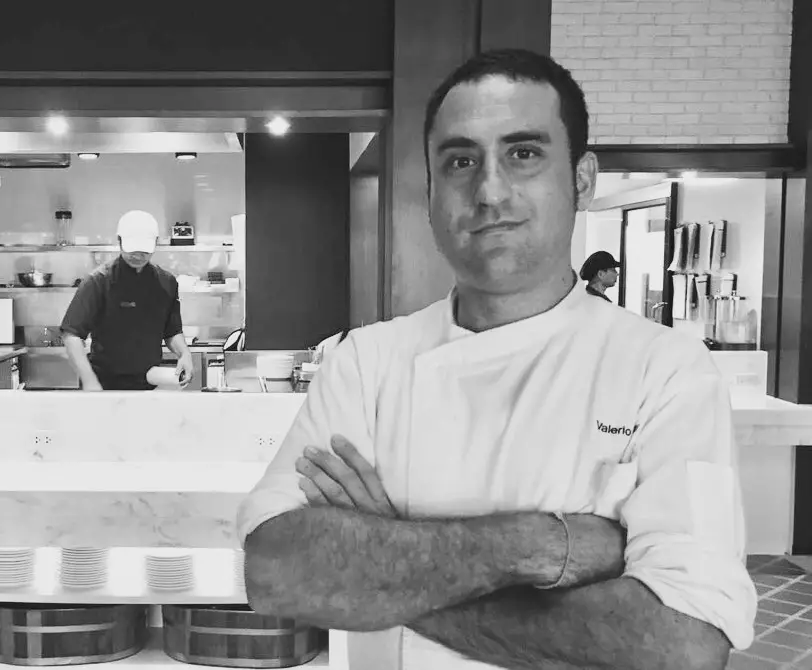The word eclectic might have been invented for Chef Valerio Pachetti. With Colombian, Italian and German heritage, as well as a resume full of international luxury hotels in Indonesia, India, Vietnam and Brazil, Chef Pachetti certainly has a varied culinary palette (and, presumably, palate) with which to create his epic fusion cuisine. We managed to catch up with him for a chat at Akyra Beach Club Phuket, before dining at the Aleenta Resort and Spa just down the road. Both hotels are part of the Akaryn Hotel Group, where Pachetti has been Executive Chef for two years.
Thank you for talking to us, Chef. Let’s start at the beginning – why did you become a chef?
I’ve always loved cooking (and eating) since I was a kid. I found myself helping my mom and grandma in the kitchen at age 4 and I developed a true passion for baking since then. Later, in high school, I would cook full meals for my family and friends – the outcome was very positive as my “guests” were always happy!
I decided at age 16 that I would become a chef. I wanted to travel the world and learn from different cultures. I realised at that time that cooking involved not only food and service but also environmental and social responsibility
What is your favourite ingredient to work with and why?
I would say my favourite ingredient is flour. The versatility of flour is so great! It is a white canvas where I can draw anything I want and express feelings and concepts, just like an artist. Wheat flour to produce pasta, adding beet puree or saffron to make colorful pasta, whole wheat to make a thousand kinds of bread and pizza, rice flour to make chinese dumplings. Think about maca flour in South America or chickpea flour in South Asia, sticky rice flour in South East Asia, and corn flour in Central America. Flour represents a huge step in human evolution; since agriculture, ancient civilizations were able to settle down and refine the product until the present. Now we can play and create infinite possibilities…You use ideas from many different cuisines in your food – what are the benefits and challenges of such an eclectic menu?
The idea behind such an international menu is to provide exciting options for our guests; variety not only in terms of cooking methods and ingredients, but providing a real reproduction of a certain cuisines which should be loyal to the original. Therefore it represents a challenge in terms of training Thai staff to learn new tastes from Mexico or from the Middle East – recipes from India and Spain have a completely different set of flavours.
How do you come up with new concepts for dishes?
Most of my dishes are my own memories of a great meal I had somewhere. It might be a street cart in Singapore, a great restaurant in Guatemala, or a small family-run “trattoria” in Italy. The inspiration comes when I think I would like to reproduce something I already experienced and share it with the world.
As a chef, I am always trying to improve myself and the best way to do it is to learn from the world, then reproduce it for others.
With all your experience, what do you think are the most important factors in making a restaurant successful in a luxury hotel?
I believe a successful hotel restaurant should have the right balance between fine dining or exotic, and comfort food dishes, in order to communicate to the guests, “We have everything you could possibly want.”
Everything in few pages is not an easy task… but I want to make kids happy, vegans should feel there are options available, Asian guests and Europeans should find great dishes to suit their mood. It is also important to offer local food somehow different to what everyone else has, which is why I decided to include insects and not so “famous” Thai dishes at NATAI , our Asian restaurant. In order to provoke, to make people try something fun and different yet authentic.

